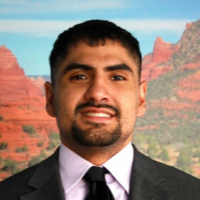Derry Misdemeanor Lawyer, New Mexico
Not enough matches for Derry Misdemeanor lawyer.
Below are all Derry Criminal lawyers.
Ramon Hernandez
✓ VERIFIEDGeneral Practice
Attorney Hernandez is a practicing lawyer in the state of New Mexico.
Samantha Madrid
✓ VERIFIEDAccident & Injury, Divorce & Family Law, Criminal
Samantha Madrid is a practicing lawyer in the state of New Mexico.
Anne Elizabeth Gibson
Criminal, Divorce & Family Law, Civil & Human Rights, Family Law
Status: In Good Standing



